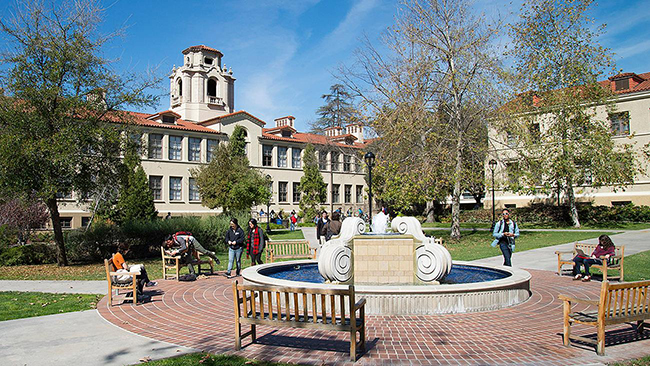Both parties approve judgment over sale of CST property
A judgment has been released in the lawsuit between Claremont School of Theology and the Claremont Colleges over the sale of CST, and both sides seem to be happy with the result.
The judgment on the property’s sale, handed down by Los Angeles Superior Court Judge Dan Thomas Oki on January 23, shifts the Claremont Colleges’ status from the right of first offer, to the right of first refusal, provided the potential buyer is of a “bona-fide educational institution of collegiate or post-graduate grade.”
In a statement released January 24, CST’s attorneys praised the decision as allowing the seminary to receive fair-market value of the property.
“We are very pleased with the judgment,” CST’s lead attorney, Charles Clark of Irvine-based Jackson Tidus, said. “Our overarching goal in pursuing the litigation was for CST to be able to receive fair market value for its property, and I believe this decision allows CST to achieve that goal.”
In its own statement, the Claremont Colleges Services also praised the judge’s decision, saying it favors the Colleges and specifically mentioning the stipulation that an educational institution must purchase the property.
The language in the judgment says if CST were to receive a “bona fide” written offer from a college or post-graduate institution, CST must deliver the offer to the Claremont Colleges, which have 30 days to match the third-party offer or decline. If the price isn’t matched or the Colleges pass, the third party gets the campus.
The dust-up began in 2016, when CST wanted to sell a large portion of its campus, including the historic Seeley-Mudd Theater, for $25 million. The Claremont Colleges Services claimed they could buy the property for $4 million based on a formula within the terms of the original agreement made in 1957.
Those terms allowed the Colleges to choose between paying fair-market value for the land or relying on the formula, which is the equivalent of the original cost of the land—$110,000—plus the price of any assets or facilities added, minus depreciation.
The two parties signed an agreement in 2001 that reactivated the original clauses of the 1957 deal, which CST contended was made through “fraudulent tactics” and was never recorded with the county clerk’s office. The judgment noted the 2001 agreement “is binding on the parties.”
The Colleges said they offered CST $14 million for the property, which they claimed was “more than generous,” and the seminary refused.
Mr. Clark, CST’s counsel, did not respond to a request for comment, but told the United Methodist News Service that fair market value for the campus is about $36 million.
CST president Reverend Kah-Jin Jeffrey Kuan noted in 2016 that CST took legal action “with great reluctance” after negotiations broke down, saying “the Consortium notified us that it would take action to assert a dubious claim to purchase the property at a price below what they offered. That is simply unacceptable.”
Meanwhile, the Claremont Colleges Services CEO Stig Lanesskog told the COURIER in 2016 the Colleges could have repurchased the land at a lower price but “wanted to do the right thing.”
The Colleges said in its statement that it offered to renovate and bring CST’s student housing up to code as part of the $14 million deal.
The Colleges also said that while it may appeal certain parts of the court’s decision, Mr. Lanesskog felt the ruling “generally was consistent with the pre-litigation offer.”
“I would assert their pre-litigation offer of $14 million is more than $20 million less than what we anticipate receiving from a fully qualified buyer under the judgment,” Rev. Kuan responded in an email. “The judge’s ruling gives us the right to sell our property at fair market value, which is what we wanted all along.”
An added part to the story is CST’s potential move to Salem, Oregon in order to merge with Willamette University. According to Dr. Kuan, the judgment is a positive step for that merger.
In a letter to CST on January 25, Rev. Kuan said the seminary and the Willamette board signed a joint memorandum of understanding in October 2018 “to affirm mission alignment of our two institutions.” He also said that a possible appeal would not interfere with the seminary’s next steps.
“This judgment allows us to move forward with our plans to sell the property and work toward an embedding partnership with Willamette University in Salem, Oregon,” he said in a statement.
Claremont Colleges spokesperson Kim Lane told the COURIER the Colleges have not made a decision about an appeal.
—Matthew Bramlett
news@claremont-courier.com










0 Comments